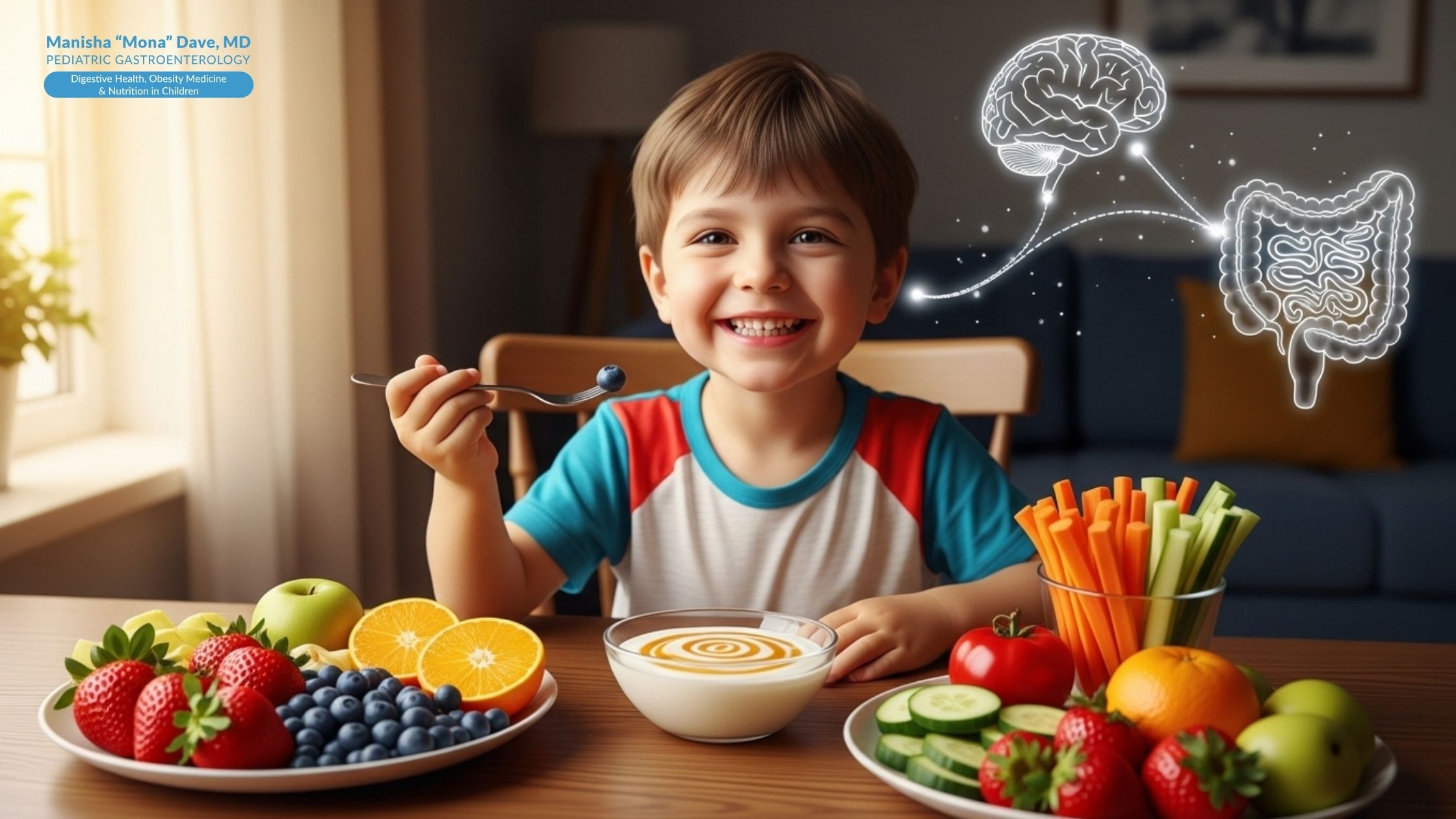



When we think about children’s health, we often focus on nutrition, exercise, and sleep. But growing research highlights another crucial factor: the gut-brain axis. This powerful communication system links the digestive tract with the brain, showing that gut health and mental health are deeply connected. The gut, often called the body’s “second brain,” plays a vital role in shaping mood, behavior, and learning in children.
The gut-brain axis is a two-way communication pathway between the digestive system and the brain. This link allows the brain to send signals to the gut and vice versa, influencing everything from digestion to mood.
At the center of this system is the gut microbiome, a community of trillions of bacteria, fungi, and other microbes living in the digestive tract. These organisms don’t just help with digestion. They also play a key role in producing neurotransmitters, regulating the immune system, and influencing mental wellness.
For kids, this means that a healthy gut microbiome can help regulate stress, improve focus, and support positive emotional development.
Good gut health directly impacts brain function, which is especially important for children because their brains are still developing:
Recognizing early warning signs is key to addressing imbalances. Some common indicators of poor gut health in children include:
Because the gut and brain communicate constantly, these issues can sometimes be mistaken for purely behavioral or emotional concerns. Monitoring both digestive patterns and mood changes gives parents a clearer picture of their child’s overall wellness.
A balanced gut microbiome has been linked to lower risks of anxiety and depression in both children and adults.
For kids, this means:
Parents can make a big difference in strengthening the gut-brain axis through everyday choices. Some gut-friendly options include:
At the same time, it’s best to limit foods that disrupt the microbiome, such as processed snacks and excess sugar. Encouraging kids to drink plenty of water and stay active also supports gut health and the second brain gut connection.
Children often crave sweets and processed snacks, but too much junk food can harm the microbiome. High sugar diets encourage the growth of harmful bacteria, while processed foods and additives disrupt the delicate balance of gut flora.
This imbalance can negatively affect gut health and brain function, leading to mood swings, poor focus, and digestive problems. Replacing junk food with healthier versions, such as homemade fruit popsicles, trail mix, or whole-grain muffins, can keep meals enjoyable while protecting the gut.
Building strong gut-brain axis health doesn’t require drastic changes. Small, consistent habits make a big difference:
These lifestyle steps create a supportive environment for both physical and mental development.
The gut-brain axis plays a powerful role in children’s overall wellness. By caring for their digestive system, you can also nurture emotional balance, mental clarity, and healthy development. Strong gut health supports not only physical growth but also long-term mental and cognitive resilience.
If you notice signs of poor gut health in your child or want expert guidance on supporting the brain-gut connection, schedule a consultation with Dr. Mona Dave. With over two decades of experience as a pediatric gastroenterologist, Dr. Dave can help you create a personalized plan to strengthen your child’s gut health and overall wellness.